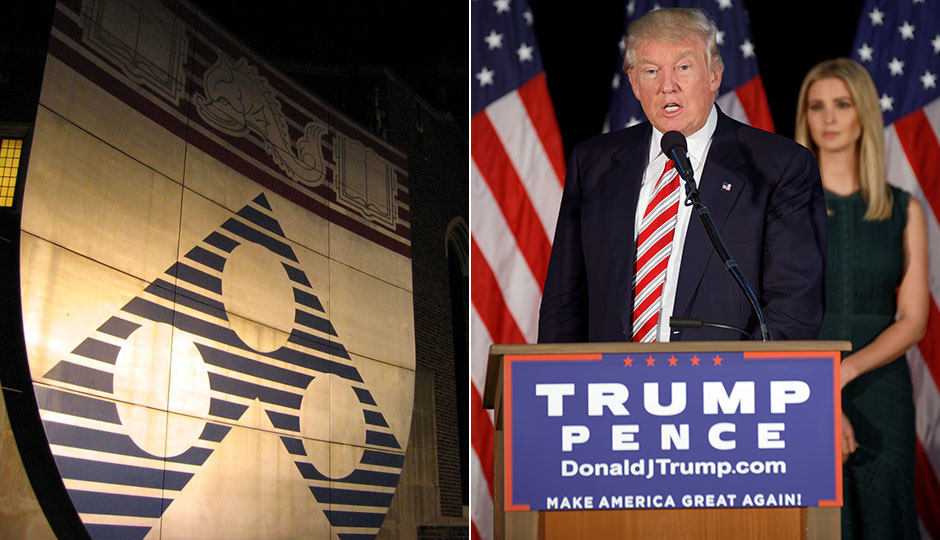Penn Community Deeply Embarrassed by President-Elect Alumnus
The University of Pennsylvania has never had one of its graduates serve as president of the United States. That will change on January 20, 2017.
Of all the people to go though Penn in its 276-ish years — 28 Nobel laureates, three Supreme Court justices, 16 College Football Hall of Famers, hundreds of legislators at the state, county and federal level — it is a failed casino magnate and reality-television star who will be the first Penn graduate to be the most powerful person in the world. (William Henry Harrison attended Penn, but dropped out when his father died and he couldn’t afford it any longer.)
Penn’s administration did not comment on the candidacy of its alumnus during the election. Now it finds itself in the position of having a majority of its faculty, staff, and students embarrassed by their association with a soon-to-be president of the United States. “It’s like someone died around campus today,” one person tweeted on Wednesday morning.
The anti-Trump opposition came from all over the university community. In June, Philadelphia magazine couldn’t find one Wharton employee who had donated to Trump. In July, more than 2,000 people affiliated with Wharton signed a petition telling Trump to stop namedropping the school. (Trump graduated from Wharton with a bachelor’s in economics in 1968.)
While he has some supporters on campus, that group is apparently so small that the official Penn for Trump group dissolved itself almost a year before the election. The Daily Pennsylvanian, the independent student paper, endorsed Clinton. Nathaniel Popkin, a writer and Penn graduate, started a petition calling on Penn to denounce Trump. According to The Daily Pennsylvanian, Wharton told its professors to decline to comment to the news media about Trump. It declined all comments about him to Philadelphia magazine.
On a conference call in September, the Clinton campaign touted the support of several Republicans — including University of Pennsylvania Republicans Chief of Staff Owen O’Hare. “At Wharton we’re encouraged to embrace honesty, ethical business practices, diversity, and respect for others,” he said on the call. “Donald Trump does not represent these values. Nearly 4,000 students and alumni, including myself, have signed an open letter stating just that. Furthermore, Trump is unqualified to be president and cannot be trusted with our national security, our economy, and most other policy areas he’s talked about.”
A few days before the election, Dan Spinelli wrote a good article in Politico about the university’s silence. There are reasons beyond its nonprofit status that Penn didn’t comment on Trump. “For much of the time of [Penn president Amy] Gutmann’s silence … Trump’s daughter Tiffany attended the college,” he writes. “She graduated last spring, just weeks before the national party conventions. Criticizing Trump would go beyond just bashing an alum: It would be blasting a tuition-paying parent.”
Today, Penn broke its silence on the election. President Amy Gutmann released a statement:
This Presidential campaign was one of the most bitter, divisive and hurtful in American history. Whoever won, millions of people were going to be terribly troubled by the results. The American people have now voted, and it is our duty to respect the outcome. Regardless of race, gender, sexual orientation, religion, political affiliation or citizenship, everyone needs to be heard and respected. I fervently believe that the diversity of America and its welcoming heart make this country great.
It is my hope that ideals that we hold dear at Penn — inclusion, civic engagement and constructive dialogue — will guide our nation’s new administration, and that they will work hard to ensure opportunity, peace and prosperity for every person and every group that together form the diverse mosaic of the United States.
